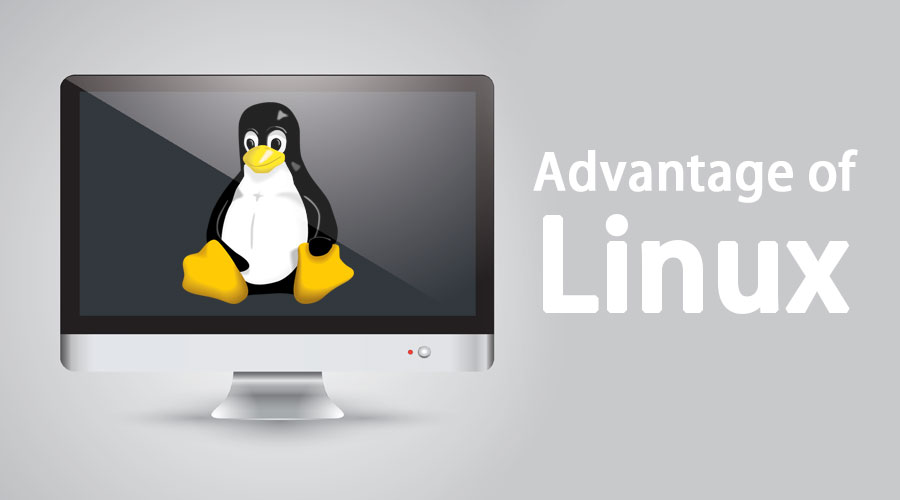Linux, the open-source operating system, has established itself as a cornerstone in the world of technology. Its unique attributes and advantages make it an essential choice for many applications. Here, we’ll explore the key reasons why using Linux is important.

1. Security
Linux is renowned for its robust security features. It benefits from:
- Permission and Access Control: Linux’s permission and access control mechanisms are strict, which minimizes the risk of unauthorized access and malware infections.
- Community Vigilance: The open-source nature means that a global community of developers can quickly identify and patch vulnerabilities, making Linux more secure over time.
- Fewer Targets: Compared to more popular operating systems like Windows, Linux experiences fewer targeted attacks, making it a safer choice for many users.
2. Stability and Reliability
Linux is highly stable and reliable, making it the preferred choice for servers and critical applications.
- Uptime: Linux systems are known for their ability to run for long periods without rebooting. This is crucial for servers that need to provide continuous service.
- Consistent Performance: Linux maintains consistent performance even under heavy loads, which is vital for enterprise environments.
3. Cost-Effectiveness
Linux is free to use, which can significantly reduce costs for individuals and organizations.
- No Licensing Fees: Unlike proprietary operating systems, Linux does not require licensing fees, making it an attractive option for budget-conscious users and enterprises.
- Reduced Hardware Costs: Linux can run efficiently on older hardware, extending the life of existing machines and reducing the need for expensive upgrades.
4. Customizability and Flexibility
Linux offers unparalleled customizability.
- Kernel Access: Users can modify the Linux kernel to optimize performance and functionality according to their specific needs.
- Choice of Distributions: With hundreds of distributions available, users can choose one that best suits their requirements, from user-friendly options like Ubuntu to specialized distributions for security, development, or multimedia.
- Desktop Environments: Users can select from a variety of desktop environments, such as GNOME, KDE, and XFCE, tailoring their interface to their preferences.
5. Open Source Philosophy
The open-source nature of Linux promotes innovation and collaboration.
- Community Contributions: Anyone can contribute to Linux, leading to rapid development and the incorporation of cutting-edge features.
- Transparency: Users can inspect the source code, ensuring there are no hidden backdoors or malicious code.
6. Performance and Efficiency
Linux is known for its efficient resource management.
- Low Overhead: Linux’s low system requirements allow it to perform well on a wide range of hardware, from powerful servers to low-end PCs.
- Optimized Performance: The ability to fine-tune the OS for specific tasks results in optimized performance, making it ideal for environments where efficiency is critical.
7. Support for Development
Linux is a favorite among developers for several reasons:
- Development Tools: Linux provides a vast array of powerful tools and libraries that streamline the development process.
- Scripting and Automation: Its robust scripting capabilities allow developers to automate repetitive tasks, improving productivity.
- Open Source Ecosystem: The abundance of open-source software available for Linux fosters a rich ecosystem for development.
8. Community and Support
The Linux community is one of its greatest strengths.
- Documentation: Extensive documentation is available for Linux, covering everything from basic usage to advanced system administration.
- Forums and Communities: Online forums and communities provide support and share knowledge, making it easier to troubleshoot issues and learn new skills.
9. Environmental Impact
Using Linux can contribute to a more sustainable computing environment.
- Extended Hardware Life: By running efficiently on older hardware, Linux reduces electronic waste.
- Energy Efficiency: Linux’s ability to manage resources effectively can lead to lower energy consumption.
Conclusion
The importance of using Linux cannot be overstated. Its security, stability, cost-effectiveness, customizability, and open-source nature make it an invaluable tool for a wide range of applications. Whether you are an individual user, a developer, or an enterprise, Linux offers benefits that can enhance productivity, performance, and security. By adopting Linux, you join a global community committed to innovation, collaboration, and technological excellence.
